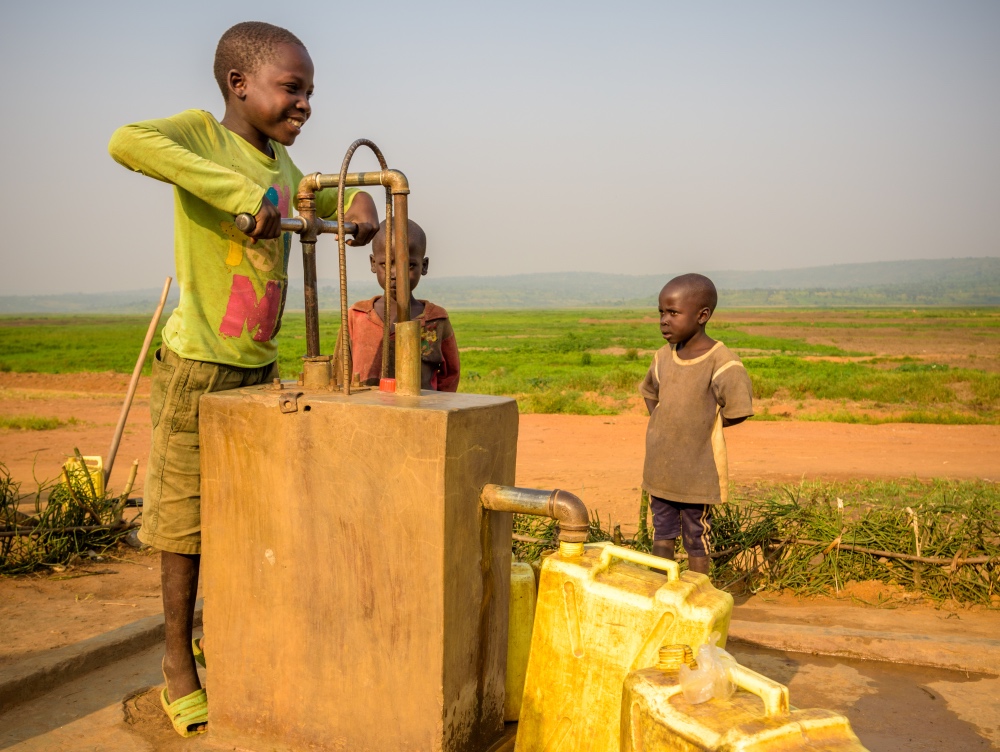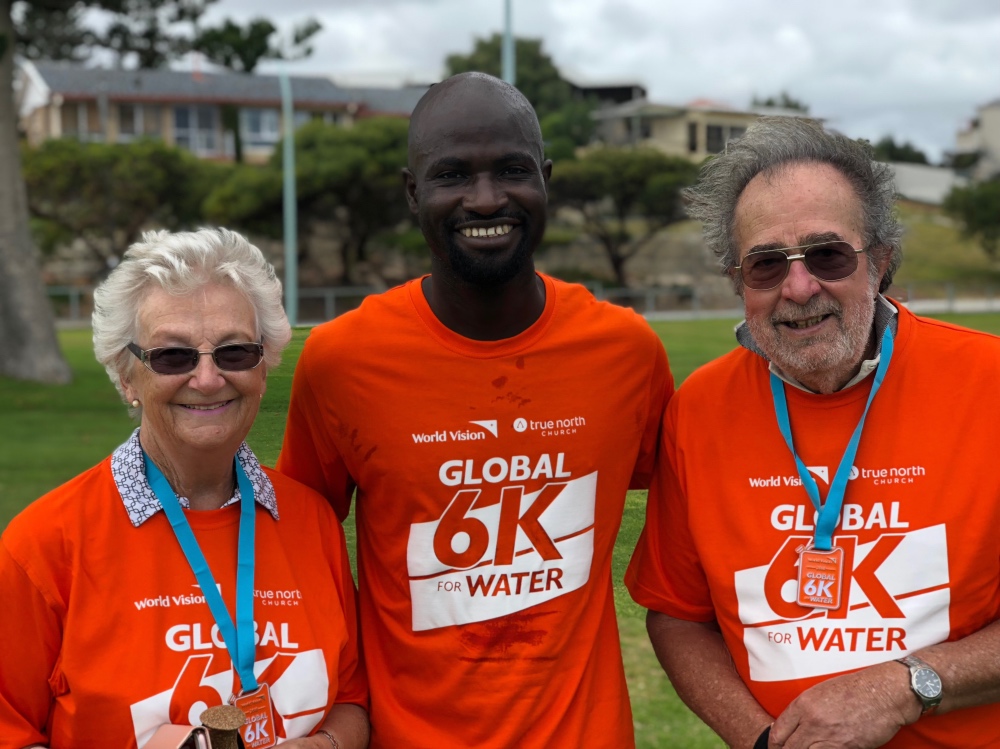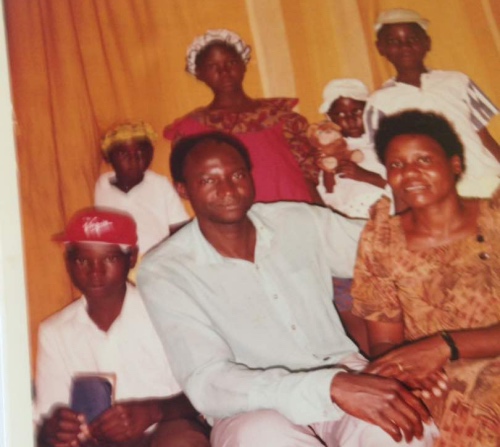
DAVID ADAMS reports on how World Vision’s upcoming Global 6K for Water has a very personal resonance for Ben Ochieng…
When Ben Ochieng sets off to run six kilometres on 19th May as part of a global initiative to raise awareness and funds around the issue of providing better access to water in developing nations, it will no doubt stir up memories.
While for many who will be running or walking the six kilometres – the average journey people in developing countries who don’t have easy access to water must undertake to reach it – it will be a symbolic journey, for Mr Ochieng, who grew up in eastern Uganda but who now lives in Perth, the run will be a reminder of his childhood treks to and from water sources to bring the life-giving liquid back to his home.
“As a child, me and my siblings and other children in the community used to walk…to get access to water,” he says. “And we used to do it in the morning, at lunchtime and in the evening just to have water for bathing, water for drinking, water for doing the dishes, water for cleaning our clothes,” he recalls.

Children attend at a World Vision installed water bore. PICTURE: World Vision.
Mr Ochieng says he was about four or five-years-old when he was first given the job of carrying a jerry can to collect water – whether it was in baking sun or pouring rain – which was located as far as six kilometres from his home.
“As you grew, the jerry can became bigger and I think at eight-years-old, it was like a 20 litre jerry can that was given to be fetching water,” he says, noting that while most kids would miss some school as a result, even when they did go after fetching water, they’d be “falling asleep”.
“It was very time consuming, difficult for a kid…and it took you ages to get back home.”
– Ben Ochieng
“It was very time consuming, difficult for a kid…and it took you ages to get back home.”
The event he’ll be running in next month – the Global 6K for Water – was first initiated by World Vision – the largest non-government provider of clean water in the developing world – in the US some four years ago. It’s since grown into a global movement with the aim of helping to provide access to clean water for people. Under the initiative, people are asked to run – or walk – six kilometres to raise awareness and funds to tackle the issue of water access in developing countries.
True North Church in Perth has previously spear-headed the World Vision initiative in Australia but for the first time this year, the whole of the country will be joining in.

Ben Ochieng (centre) with friends taking part in a previous Global 6K for Water. PICTURE: True North Church.
Progress is being made – in 2017 alone, World Vision provided access to clean water to 3.2 million people while 91 per cent of the world’s population have access to improved drinking water, up from 76 per cent in 1990. But there is still work to be done with around 844 million people around the world still lacking access to clean safe water close to home (this access is generally defined as being able to obtain it within a half hour round trip).
Charmaine Waduge, a spokesperson for World Vision Australia – which is committed to reaching all the people in areas where they work with clean water by 2030, says that among those communities that do close lack access to clean water, the burden of obtaining it falls predominantly on women and children, mainly girls but also boys, as was the case with Ben.
“The walk is dangerous, often children miss school like Ben did and you can do the walk but still come back with dirty water and that really leads to a lot of complications of illness and diarrhoea.”
– Charmaine Waduge, World Vision Australia.
“The walk is dangerous, often children miss school like Ben did and you can do the walk but still come back with dirty water and that really leads to a lot of complications of illness and diarrhoea,” she says.
Poor water and sanitation is the leading cause of diarrhoea – the second biggest cause of death among children under five, it kills some 760,000 each year.
Mr Ochieng, who lives in Perth with his Australian wife Belinda and their three young sons – their youngest born just weeks ago, has his own reason to be grateful for the work of World Vision in helping to provide access to water.
He can recall how his childhood journeys to a water source were significantly shortened when, at the age of eight, World Vision came and dug a water bore just half a kilometre from the community where his family was living in eastern Uganda.
“That was very good, it was like Christmas everyday, it was like the best thing ever,” he says.
Not only was the bore closer, it also provided clean water, something else Mr Ochieng says he was thankful for in a community where a lot of children had died after drinking contaminated water.
So when he heard about World Vision’s Global 6K initiative, Mr Ochieng says he immediately decided he wanted to give something back as a thankyou for the help the organisation’s workers had given his family and community.

Mr Ochieng – on the left holding a Bible – with some members of his family in Uganda.
“I wanted to be part of this I was like, I have to give back…I was a direct beneficiary so I have to give back.”
– Ben Ochieng on why he’s involved in the Global 6K for Water
“I was moved, I wanted to be part of this I was like, I have to give back…” he says. “World Vision does a great job – I was a direct beneficiary so I have to give back.”
Those who do want to take part in the event on 19th May – whether as an individual or by registering a host site (and there were already 60 registered sites, mostly church-organised, across Australia when Sight spoke to World Vision last week) – should head to the World Vision website. And if you don’t want to run or can’t, that’s OK too – Ms Waduge says people are welcome to walk the six kilometres or even push a pram.
She adds that all those who take part will also receive a special “race bib” which will feature the image of a particular child who living in a developing country where water access is a challenge – so they can be running or walking with a specific child in mind.
While World Vision hopes those who take part in the event will continue their relationship with the child after the race through sponsorship, Ms Waduge says that regardless of whether they can do that or not, just by taking part they are making a difference.
“You’ll help transform the lives of women and children who start their day in the exact same way,” she says. “Every step that participants take is literally one that they don’t have to.”
The Global 6K for Water takes place on 19th May. For more information, head to www.worldvision.com.au/global6kforwater.





